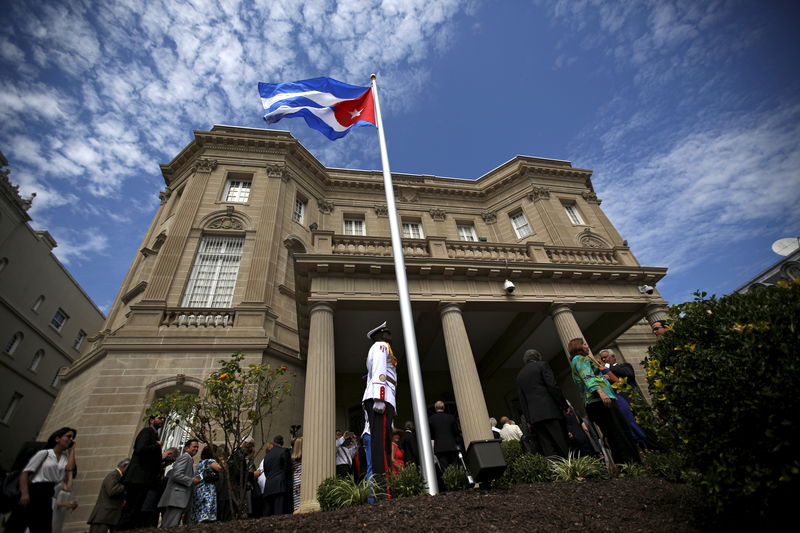By Jaime Hamre
SANTIAGO, Cuba (Reuters) - Cuban leaders pledged to keep socialism alive but toned down the anti-U.S. rhetoric at Cuba's first national holiday since re-establishing diplomatic relations with the United States on July 20.
Sunday marked the 62nd anniversary of the first offensive by Fidel Castro's guerrillas against the army of U.S.-backed leader Fulgencio Batista in 1953, starting a rebellion that brought down Batista more than five years later.
The most important holiday on Cuba's revolutionary calendar, Sunday's celebration featured artistic performances and patriotic speeches.
Missing were the blistering, anti-imperialist tirades that Fidel Castro, now 88 and retired as president, once made a staple of July 26, the date of the attack on the Moncada barracks in Santiago, a city on the eastern end of Cuba some 500 miles (800 km) from Havana.
Current Cuban President Raul Castro has generally softened his critique since reaching detente with U.S. President Barack Obama last December. Obama has chosen to engage Cuba, departing from past presidents who mostly sought to punish Cuba for its one-party system and record of jailing and harassing dissidents.
Sunday's keynote speaker, Vice-President Jose Ramon Machado Ventura, called the re-establishment of diplomatic relations the culmination of a first step that began in December.
He also mentioned the two main grievances Cuba still has with the United States: Washington's economic embargo against the island and the U.S. naval base at Guantanamo Bay in eastern Cuba, territory that Cuba wants returned.
"Now begins a long and complex road toward normalization of bilateral relations that includes among other aspects the end of the blockade and the return of the Guantanamo naval base," Machado Ventura, 84, told 6,000 Cubans gathered at the Moncada barracks.
Obama has asked Congress to begin lifting the embargo but faces opposition from the Republican majority. Senior U.S. officials have repeatedly said Guantanamo is not up for discussion.
Although Raul Castro personally absolved Obama for past U.S. aggression against Cuba, some Cubans remain circumspect.

"I don't trust imperialism, not even a little," said Ernesto Gonzalez, 84, one of the rebels who attacked the barracks in 1953. "They have been cheating us since we first became a republic in 1902. They have taken all the riches from our country. We aren't going to let ourselves get cheated again by imperialism. Fidel will never be vanquished."